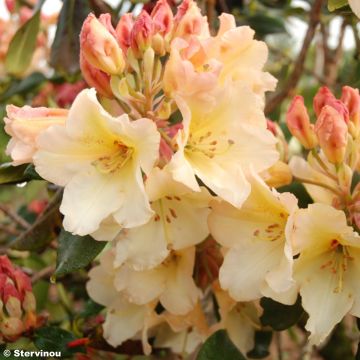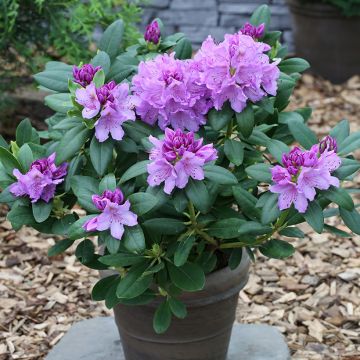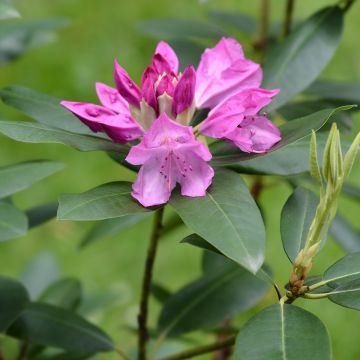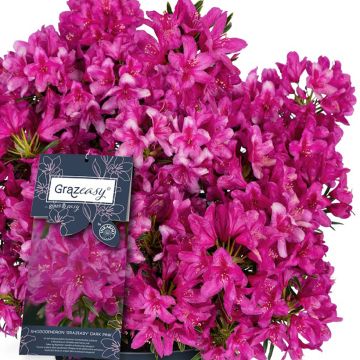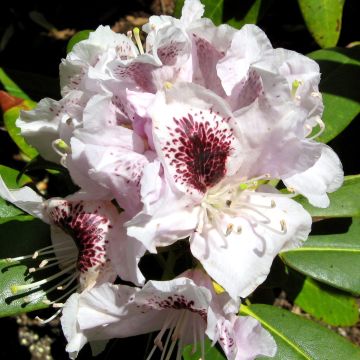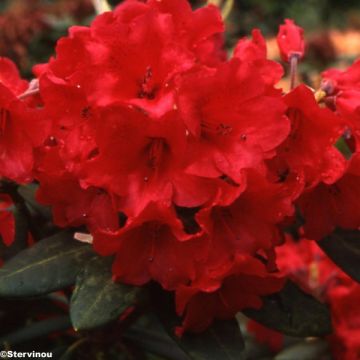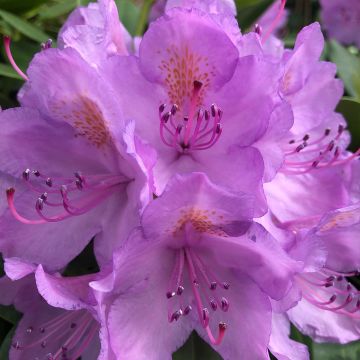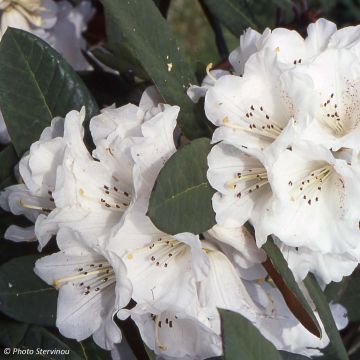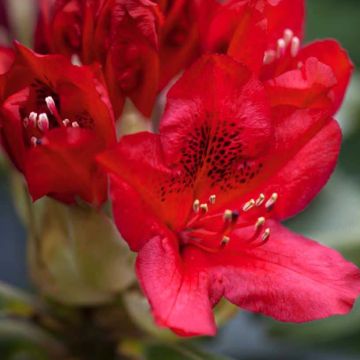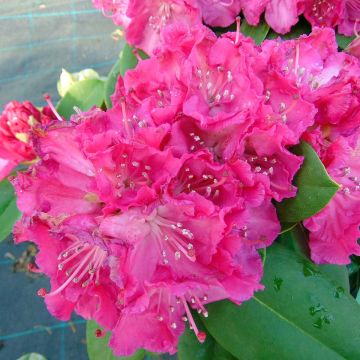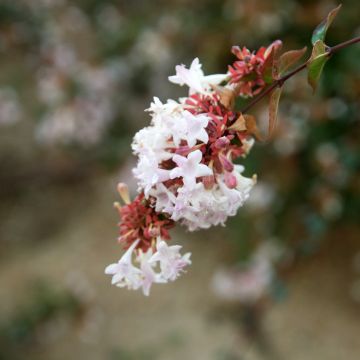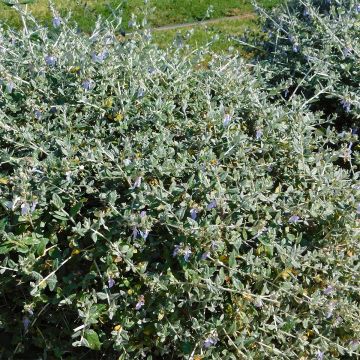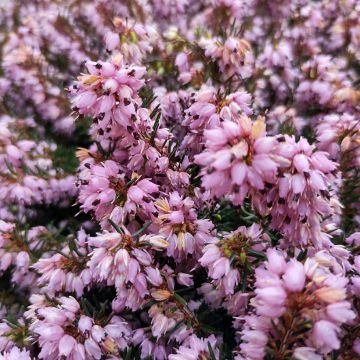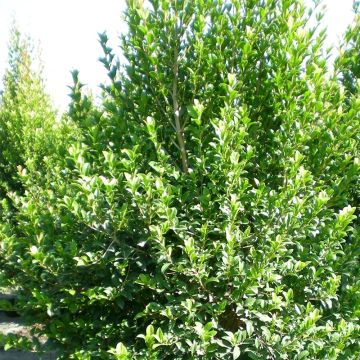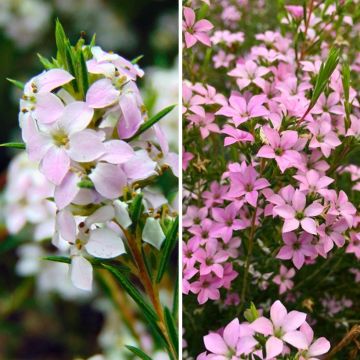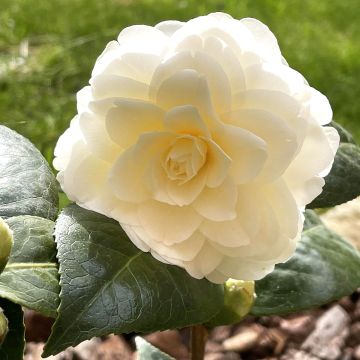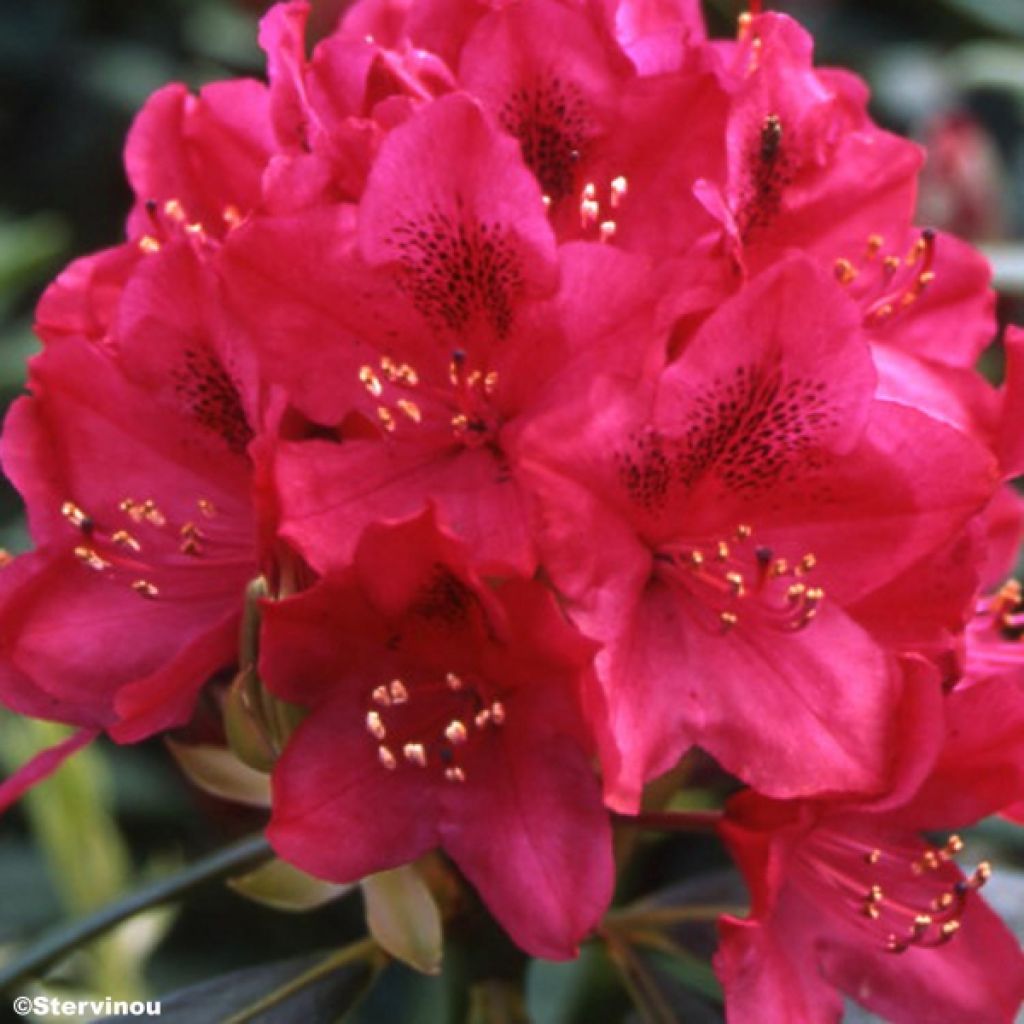

Rhododendron Nova Zembla
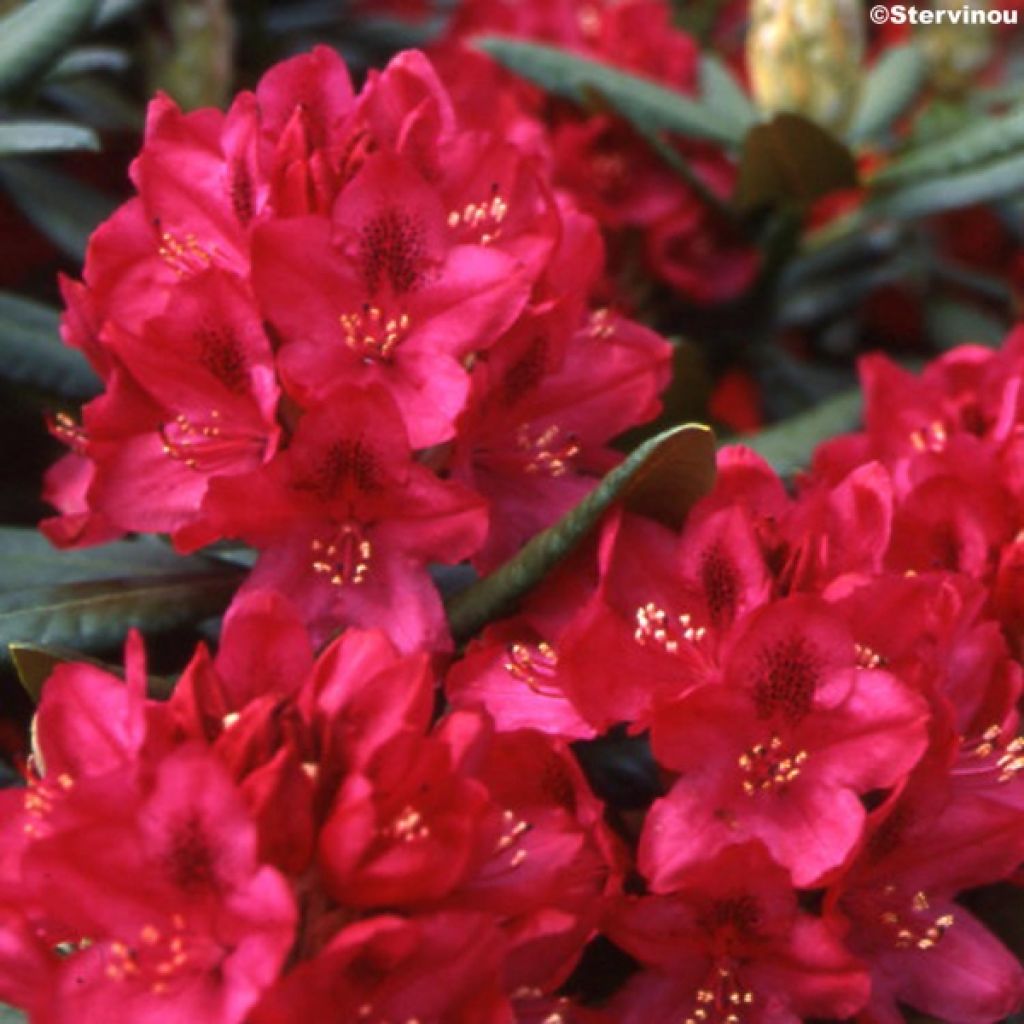

Rhododendron Nova Zembla
Rhododendron Nova Zembla
Rhododendron Nova Zembla
Rhododendron
Very beautiful rhododendron, well watered and in excellent condition, stunning dark pink colour.
CLAUDE, 19/05/2022
Special offer!
Receive a €20 voucher for any order over €90 (excluding delivery costs, credit notes, and plastic-free options)!
1- Add your favorite plants to your cart.
2- Once you have reached €90, confirm your order (you can even choose the delivery date!).
3- As soon as your order is shipped, you will receive an email containing your voucher code, valid for 3 months (90 days).
Your voucher is unique and can only be used once, for any order with a minimum value of €20, excluding delivery costs.
Can be combined with other current offers, non-divisible and non-refundable.
Home or relay delivery (depending on size and destination)
Schedule delivery date,
and select date in basket
This plant carries a 24 months recovery warranty
More information
We guarantee the quality of our plants for a full growing cycle, and will replace at our expense any plant that fails to recover under normal climatic and planting conditions.

Would this plant suit my garden?
Set up your Plantfit profile →
Description
Rhododendron 'Nova Zembla' is an evergreen bush that adds charm to your garden all year round. Its spring flowers in carmine red will bring a beautiful floral touch to your garden. Whether planted alone, in a bed, or in a container, it will stand out.
Rhododendron 'Nova Zembla' forms a spreading bush growing up to 1.70m (6ft) in height and 1.20m (4ft) in width when fully grown. Its dark green elliptical leaves are evergreen, leathery, elongated, and have a prominent central vein. From mid-April to June, its corymbs of 3 to 6 carmine red flowers with purple spots on the upper petals will distinguish it from other bushes. With its impressive size, this Rhododendron will bring life to the back of your bed.
Rhododendron 'Nova Zembla' is very hardy, tolerating temperatures as low as -25°C. It prefers a partially shaded to sunny position. When grown in a container, the Rhododendron 'Nova Zembla' prefers a shaded position. Being a vigorous plant, it thrives in moist, humus-rich, well-drained, and slightly acidic soil.
Rhododendron 'Nova Zembla' is perfect for the back of a bed, as a decorative plant, or as a standalone feature. It will dress up your garden all year round and bring it to life in spring with its numerous beautiful carmine red flowers. Plant it on a slope or rockery alongside Magnolias, Pieris, Heather, Kalmias, Azaleas, and Japanese Maples.
Report an error about the product description
Rhododendron Nova Zembla in pictures
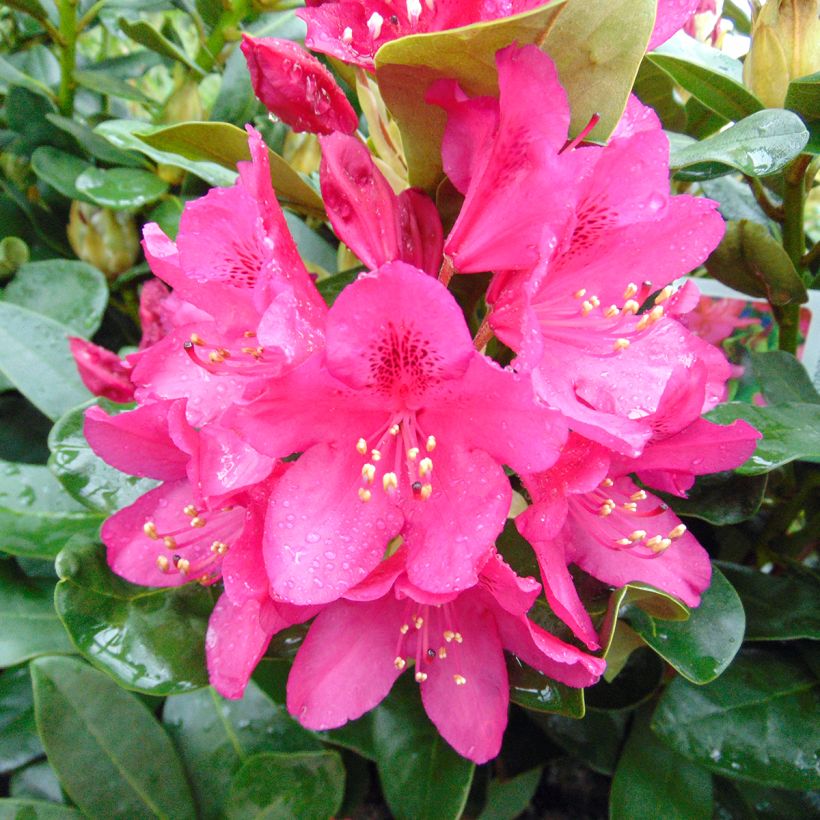

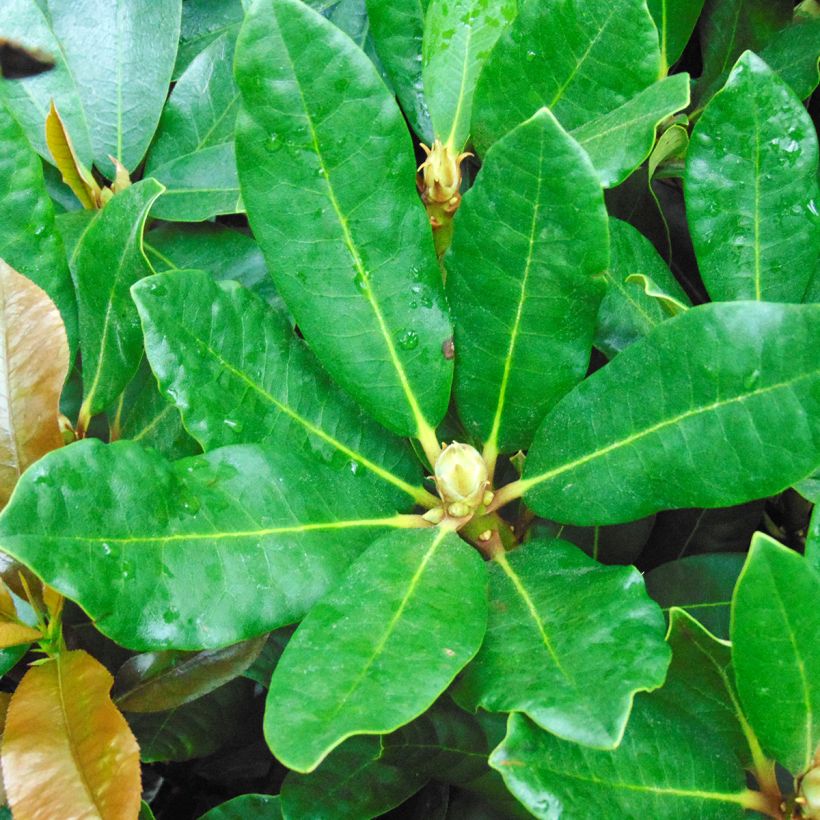

Plant habit
Flowering
Foliage
Botanical data
Rhododendron
Nova Zembla
Ericaceae
Rhododendron
Cultivar or hybrid
Other Large Rhododendrons
View all →Planting and care
Plant Rhododendron 'Nova Zembla' in a partially shady or sunny location, protected from cold and drying winds, in a moist, humus-rich and light soil with an acidic tendency. Like all plants that prefer acidic soil, it does not tolerate limestone or heavy soils that become waterlogged in winter. Dig a hole three times larger than the pot. Soak the root ball in lime-free water and plant the bush at the collar level, in a mixture consisting of leaf compost, gravel or pumice, and loam. Water generously and keep the soil moist in summer. Azaleas and Rhododendrons have a shallow root system. As a result, they are susceptible to long periods of drought. Therefore, it is advisable to enrich the soil with humus and provide abundant watering during dry periods. Additionally, since the root system is not very strong, it is essential to lighten heavy soils with draining materials (gravel, pumice, clay pellets) during planting. Apply a mulch of shredded pine bark around the base of the bush every spring to maintain soil moisture and acidic pH. Maintenance involves removing faded flowers in summer and removing dead branches. Azaleas and Rhododendrons can sometimes be attacked by weevils that eat the edges of leaves and rootlets, as well as the notorious "rhododendron beetle" that rarely causes significant damage. Yellowing of leaves (chlorosis) in Rhododendrons indicates poor assimilation of iron from the soil and can lead to premature death of the plant. While limestone is often the cause, poorly drained soil or deeply planted root balls can also explain this phenomenon.
Planting period
Intended location
Care
-
, onOrder confirmed
Reply from on Promesse de fleurs
Similar products
Haven't found what you were looking for?
Hardiness is the lowest winter temperature a plant can endure without suffering serious damage or even dying. However, hardiness is affected by location (a sheltered area, such as a patio), protection (winter cover) and soil type (hardiness is improved by well-drained soil).

Photo Sharing Terms & Conditions
In order to encourage gardeners to interact and share their experiences, Promesse de fleurs offers various media enabling content to be uploaded onto its Site - in particular via the ‘Photo sharing’ module.
The User agrees to refrain from:
- Posting any content that is illegal, prejudicial, insulting, racist, inciteful to hatred, revisionist, contrary to public decency, that infringes on privacy or on the privacy rights of third parties, in particular the publicity rights of persons and goods, intellectual property rights, or the right to privacy.
- Submitting content on behalf of a third party;
- Impersonate the identity of a third party and/or publish any personal information about a third party;
In general, the User undertakes to refrain from any unethical behaviour.
All Content (in particular text, comments, files, images, photos, videos, creative works, etc.), which may be subject to property or intellectual property rights, image or other private rights, shall remain the property of the User, subject to the limited rights granted by the terms of the licence granted by Promesse de fleurs as stated below. Users are at liberty to publish or not to publish such Content on the Site, notably via the ‘Photo Sharing’ facility, and accept that this Content shall be made public and freely accessible, notably on the Internet.
Users further acknowledge, undertake to have ,and guarantee that they hold all necessary rights and permissions to publish such material on the Site, in particular with regard to the legislation in force pertaining to any privacy, property, intellectual property, image, or contractual rights, or rights of any other nature. By publishing such Content on the Site, Users acknowledge accepting full liability as publishers of the Content within the meaning of the law, and grant Promesse de fleurs, free of charge, an inclusive, worldwide licence for the said Content for the entire duration of its publication, including all reproduction, representation, up/downloading, displaying, performing, transmission, and storage rights.
Users also grant permission for their name to be linked to the Content and accept that this link may not always be made available.
By engaging in posting material, Users consent to their Content becoming automatically accessible on the Internet, in particular on other sites and/or blogs and/or web pages of the Promesse de fleurs site, including in particular social pages and the Promesse de fleurs catalogue.
Users may secure the removal of entrusted content free of charge by issuing a simple request via our contact form.
The flowering period indicated on our website applies to countries and regions located in USDA zone 8 (France, the United Kingdom, Ireland, the Netherlands, etc.)
It will vary according to where you live:
- In zones 9 to 10 (Italy, Spain, Greece, etc.), flowering will occur about 2 to 4 weeks earlier.
- In zones 6 to 7 (Germany, Poland, Slovenia, and lower mountainous regions), flowering will be delayed by 2 to 3 weeks.
- In zone 5 (Central Europe, Scandinavia), blooming will be delayed by 3 to 5 weeks.
In temperate climates, pruning of spring-flowering shrubs (forsythia, spireas, etc.) should be done just after flowering.
Pruning of summer-flowering shrubs (Indian Lilac, Perovskia, etc.) can be done in winter or spring.
In cold regions as well as with frost-sensitive plants, avoid pruning too early when severe frosts may still occur.
The planting period indicated on our website applies to countries and regions located in USDA zone 8 (France, United Kingdom, Ireland, Netherlands).
It will vary according to where you live:
- In Mediterranean zones (Marseille, Madrid, Milan, etc.), autumn and winter are the best planting periods.
- In continental zones (Strasbourg, Munich, Vienna, etc.), delay planting by 2 to 3 weeks in spring and bring it forward by 2 to 4 weeks in autumn.
- In mountainous regions (the Alps, Pyrenees, Carpathians, etc.), it is best to plant in late spring (May-June) or late summer (August-September).
The harvesting period indicated on our website applies to countries and regions in USDA zone 8 (France, England, Ireland, the Netherlands).
In colder areas (Scandinavia, Poland, Austria...) fruit and vegetable harvests are likely to be delayed by 3-4 weeks.
In warmer areas (Italy, Spain, Greece, etc.), harvesting will probably take place earlier, depending on weather conditions.
The sowing periods indicated on our website apply to countries and regions within USDA Zone 8 (France, UK, Ireland, Netherlands).
In colder areas (Scandinavia, Poland, Austria...), delay any outdoor sowing by 3-4 weeks, or sow under glass.
In warmer climes (Italy, Spain, Greece, etc.), bring outdoor sowing forward by a few weeks.






























